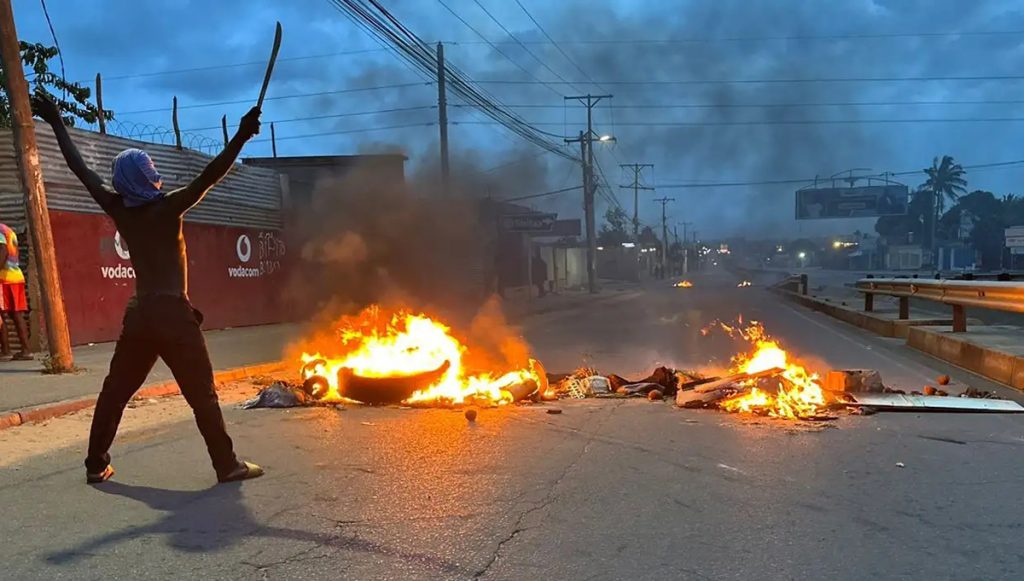A large-scale jailbreak in Mozambique has compounded the country’s ongoing unrest, with 1,500 prisoners escaping from a high-security facility amid widespread protests over alleged electoral fraud. The incident, which occurred in the northern province of Nampula, marks one of the most significant security breaches in the country’s recent history. Authorities confirmed that at least 33 people, including guards and civilians, were killed during the escape, which unfolded in the context of escalating post-election violence.
The jailbreak took place during a wave of protests sparked by disputed general election results. The ruling party, FRELIMO, claimed victory in the October elections, but opposition parties, particularly RENAMO, have accused the government of orchestrating widespread voter suppression and fraud. Demonstrations, some turning violent, have erupted across major cities and towns, creating a climate of instability that appears to have enabled the organized attack on the prison.
According to local officials, the jailbreak was carried out by an armed group that stormed the facility, overpowering guards and creating a diversion by igniting fires and detonating explosives. The attack resulted in chaos, with inmates fleeing en masse. Many of the escapees are convicted criminals serving sentences for serious offenses, including murder, rape, and armed robbery, raising significant concerns about public safety.
The death toll includes prison staff who resisted the attackers, several escapees caught in the crossfire, and civilians in nearby areas who were struck by stray bullets. Eyewitnesses reported harrowing scenes of panic and violence as gunfire erupted and prisoners scattered in all directions. Authorities are now conducting a massive manhunt, deploying security forces to recapture the fugitives and secure the region.
The jailbreak underscores Mozambique’s fragile security situation, already strained by political tensions and an ongoing Islamist insurgency in the northern Cabo Delgado province. Critics have accused the government of failing to prioritize internal security, focusing instead on suppressing dissent related to the election dispute. The situation has drawn international attention, with calls from the United Nations and regional bodies like the Southern African Development Community (SADC) for immediate dialogue to prevent further escalation.
Mozambique’s leadership faces immense pressure to restore order, recapture the escapees, and address the root causes of the unrest. The combination of political grievances, weak institutional capacity, and the growing influence of organized criminal networks threatens to undermine the country’s stability, requiring urgent and coordinated action to prevent a deeper crisis.
